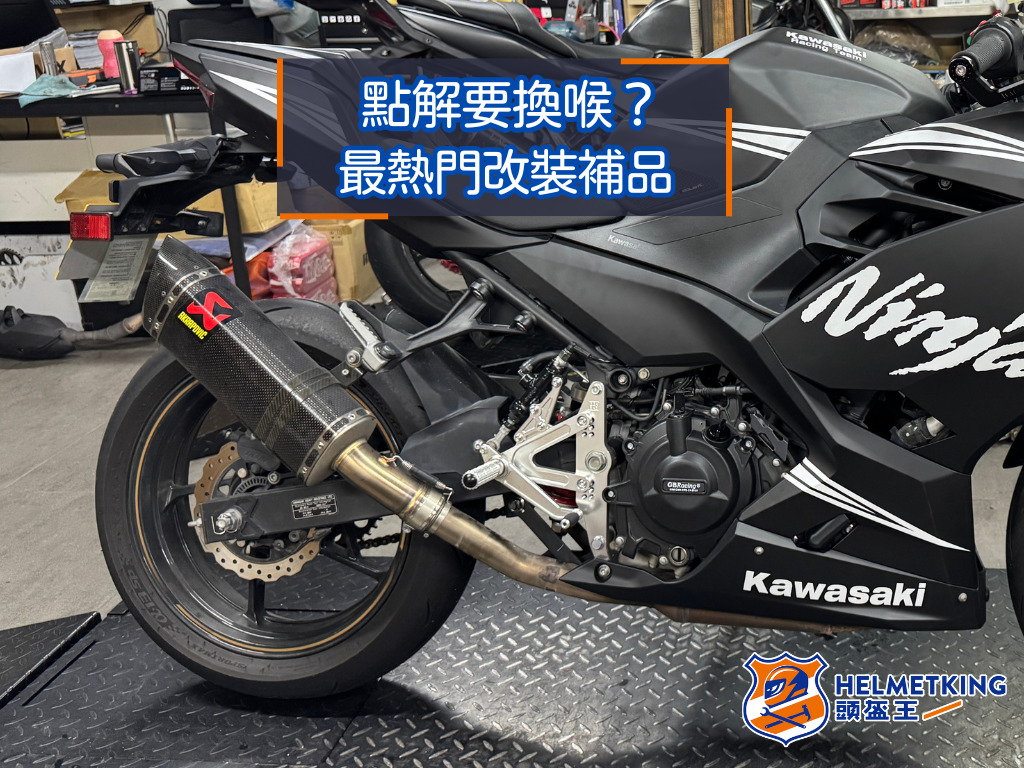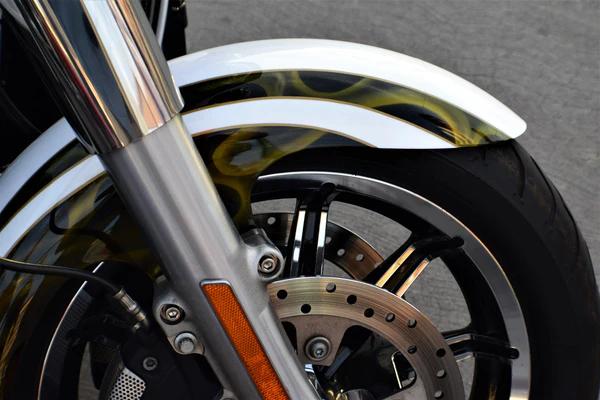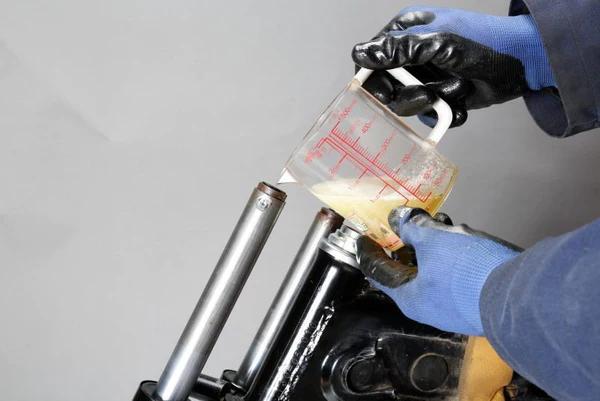
[Modification DIY] Why Upgrade Exhaust
on 2026-01-01
2023-02-02
Head suspension, generally known by Hong Kong motorcycle enthusiasts as head fork or front fork, is one of the suspension equipment of motorcycles. It connects the body and front wheels, directly affects the comfort of the driver and passengers, and also affects the driving habits of riders. It has a direct impact - it can not only increase the ground contact of the tire, but also maintain the stability of the vehicle body. Just as the engine needs oil lubrication and protection, the front fork is also assisted by front fork oil to make it perform better. Just like engine oil, suitable fork oil is even more powerful for strengthening suspension equipment, and just like engine oil, there are times when it is "expired" or "inappropriate". Let Helmet King dismantle the mystery of scalp fork oil with you today!

As previously described, the front suspension of a motorcycle supports the front wheel and absorbs vibrations and shocks from the road. There are many types of front forks, and we will briefly explain the operating principle of the most common "telescopic fork". This type uses a spring and hydraulic core to absorb shock. First, the front fork spring absorbs the impact force from the road, and the hydraulic core is used for further shock absorption. The shock-absorbing oil contained in the shock absorber is the fork oil. If there is no damping of the hydraulic core, the spring will continue to expand and contract repeatedly every time it is impacted by an external force, and the vehicle will become unstable. When the front fork is retracted, the fork oil flows from the hydraulic core to the oil chamber through a hole called the "orifice". When the high-viscosity fork oil passes through the small holes, it creates strong resistance.

The resistance generated when the front fork oil passes through the orifice becomes the damping force, so the hardness of the front fork oil itself has a great influence on the characteristics of the front shock absorber. In other words, fork oil hardness is the viscosity of the oil. The more viscous and thicker the oil, the stronger the damping force of the fork. Different motorcycle types are used in different driving situations and road conditions, from daily driving to off-road and even ultra-high-speed tracks. On rougher roads such as off-road roads, low-viscosity oil is generally used to maintain weaker damping force and absorb the bumpy feeling of the road; on high-speed roads, high-viscosity oil is used in exchange for stronger grip fertility. Choosing a fork and applying a matching fork oil can have a huge impact on ride feel, so each oil manufacturer releases a product for each viscosity so consumers can use it correctly.
The degree of commercially available fork oil is generally based on the unified standard of SAE standard oil viscosity, that is, the common viscosity of engine oil is "5W" and "10W". The larger the number, the higher the viscosity. There are also front fork oils with "G5" and "G10" as the pre-definition. The larger the number, the higher the viscosity. However, the viscosity of G10 and 10W is different, so you should pay special attention before purchasing.

Most people will want to change the fork fluid viscosity if they have a problem or are not happy with their current front suspension setup. Increasing the viscosity of the fork oil makes it harder for the suspension to sink, so it can handle higher-than-original-viscosity loads. In other words, you can brake more aggressively than the original viscosity. If you want to do aggressive driving on the track, or worry that the original suspension setting is too soft, even for street riding, increasing the viscosity may be better. Also, the fork oil can get hot during continuous driving on the track. Since oils become less viscous as they get warmer, you can choose harder oils to account for the higher temperatures. On the contrary, the viscosity of the fork oil decreases, and the suspension becomes softer and easier to sink. If you feel that your current suspension is too stiff, the ride feels heavy on bumps, rear seat passengers complain of discomfort, or you are uncomfortable with the stiff feeling that the suspension does not sink with the load, reducing the viscosity is one way to go. Generally speaking, off-road drivers or those who often go back and forth on Longxiang Road (laughs) usually reduce the viscosity of the front fork oil. Here is a summary of the pros and cons of increasing/decreasing viscosity:
Increase fork oil viscosity
·advantage:
Withstands sudden braking and improves heat resistance
·shortcoming:
The fork oil is too hard, the suspension compression is greatly reduced
Driving in curves will be more difficult
Poor ride comfort and difficulty adapting to road conditions, increased risk of tipping over
Reduce fork oil viscosity
·advantage
Improve ride comfort
·shortcoming
Fork oil is too soft and the forks will bottom out when a load is applied
When the front fork hits the bottom, the front tire will slip; when the front fork bottoms out, it will rebound, increasing the chance of falling

Fork oil, like engine oil, will deteriorate over time and mileage. In addition to the viscosity of the fork oil, the deterioration of the oil itself and the deterioration of the fork will also cause oil leakage, and the change in the amount of oil will make the feel worse. For a comfortable ride, check the condition of your forks regularly! For vehicles that have been idle for more than a year, or vehicles with a mileage of 5,000km to 10,000km, if the front fork feels sparse and the damping is weakened, it is necessary to replace the front fork oil, including replacing the oil seal. As for the viscosity of the front fork oil, it is of course best to refer to the owner's manual of the car model.
The process of changing the front fork oil is not simple, of course you need to find a trustworthy garage master. Helmet King's own garage master has rich maintenance experience. He not only provides high-quality maintenance services, but also provides other motorcycle maintenance suggestions to help your beloved horse look like a new car again!
